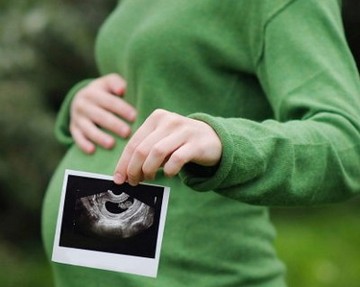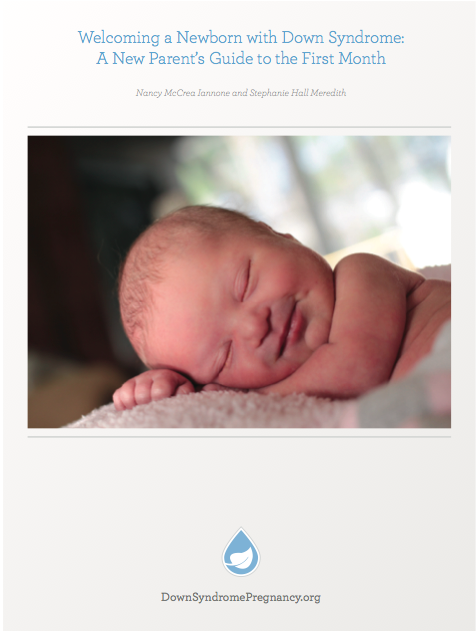Down Syndrome And Pregnancy

Contents:
Down Syndrome Test During Pregnancy
It has always been difficult to raise a child with such a severe and incurable disease as Down syndrome, as such children need a lot of attention and even growing older they can’t do without somebody’s help. In fact they become adult, but at the same time remain children who need 24-hour care. The cause of the disease is the presence of an extra chromosome, which affects the fetal development.
Almost half the children affected by Down syndrome have a heart defect. It is very hard for parents to raise a child with Down syndrome. The statistics say that approximately one of 600-800 children is born with this syndrome. The risk to give birth to such a child is associated with maternal age, but it can also occur in young women. The pregnant can make a special screening for Down syndrome that will detect pathological deviations in the fetus.
Diagnosis for the Disease

Nowadays many methods help to detect fetal abnormalities. The expectant mothers can undergo such diagnosis if they wish, or on the doctor’s recommendation. One of the common methods of diagnosis is non-invasive prenatal screening. It includes a blood test for HCG and AFP and ultrasound examination of the fetus. Human chorionic gonadotropin is a hormone responsible for chorionic secretion following the implantation of a fertilized egg.
Its presence or absence, levels of human chorionic gonadotropin in the blood help doctors to detect pregnancy in women. Observing rising levels of gonadotropin the doctor can draw some conclusions about the pregnancy course. Starting with 10-13 weeks of pregnancy, a specialist can tell whether there is an abnormality in the fetal development.
The type of protein produced by the fetal liver is called alpha-fetoprotein. It penetrates through the amniotic fluid to the mother’s blood. Its contents in the blood can give the image of the pregnancy course. If AFP levels are slightly below normal, it means that the fetus is developing Down syndrome; high levels of this hormone testify about the neural tube pathology. Alpha-fetoprotein contents increase with the pregnancy term. Between 16 and 18 weeks, the difference between normal, low or high levels AFP is the most distinctive; it’s recommended to conduct the test at this period.
At this period the screening is conducted, an ultrasound scan is performed between 10 and 13 weeks. Starting with this term a good doctor can detect formation of wrinkles on the baby’s neck. Fetuses with Down syndrome have increased skin on the back of the neck due to the accumulation of fluid in these tissues, this can help to detect an abnormality in the early stage. The lack of nasal bone is another symptom of Down syndrome.
It should be remembered that studies conducted is in the early stages does not yield accurate results. They can give both positive and negative results, however, both can be false. The likelihood of the false results is equal in both negative and positive tests. This means, that it is not worth making hasty conclusions and ill-judged acts.
You can also conduct another test- chorionic villus sampling. This method is quite dangerous; it may result in an involuntary miscarriage. Another method of diagnosis is amniocentesis. It is based on the amniotic fluid sample testing. This method along with the previous one involves uterine puncture and getting a sample of amniotic fluid. This method is unable to determine exactly whether the fetus has any pathology.
Pros and Cons of the Test
You have to remember that non-invasive diagnostics only assumes the possibility of Down syndrome development in the baby and never gives 100 % results. Before you conduct this study, it is necessary to stop taking some medications and eliminate physical exertion. Smoking influences alpha-fetoprotein levels, so it is necessary to abstain from smoking; you also need to know the gestational age in order to receive correct results. If the high risks of abnormalities are detected, the doctor can appoint amniocentesis test that can be performed only in the 18th week of gestation and requires enough amounts of amniotic fluid.
The results of the amniocentesis will be ready in about a fortnight. If this study confirms other tests results, the issue of abortion will arise. Of course, abortion at this term is quite dangerous and has serious consequences. The statistics say that most cases of such pathologies end with a natural miscarriage in early pregnancy. Uterine puncture through the abdomen wall has many implications including miscarriage, fetal trauma, intrauterine fetal infection, rhesus disease. This can happen absolutely in all cases.
In 5 % of cases the test don’t yield any results. These tests affect the expectant mother’s psychological status, she is afraid of having an unhealthy child, which has negative consequences for both her and the baby’s health. There is still no definite opinion whether this test is necessary, as it doesn’t give exact results, and even more so the final diagnosis can be established only in the fifth month of pregnancy, when it’s dangerous to have an abortion. It is also worth noticing, that such studies have bad implications. However, it should be remembered that today science can’t treat this pathology, but it is known that women listed in the risk group later gave birth to healthy children.
Video: A Down Syndrome Pregnancy.
My friend has made a screening at the 11th week and the baby was diagnosed with the Down’s syndrome. She decided to keep the baby. At the 15th week the fetus died. The nature made the other choice…